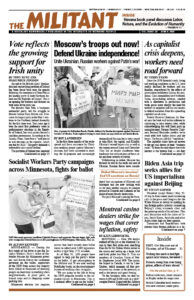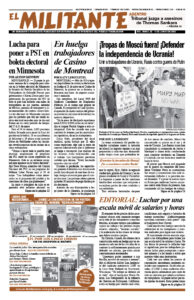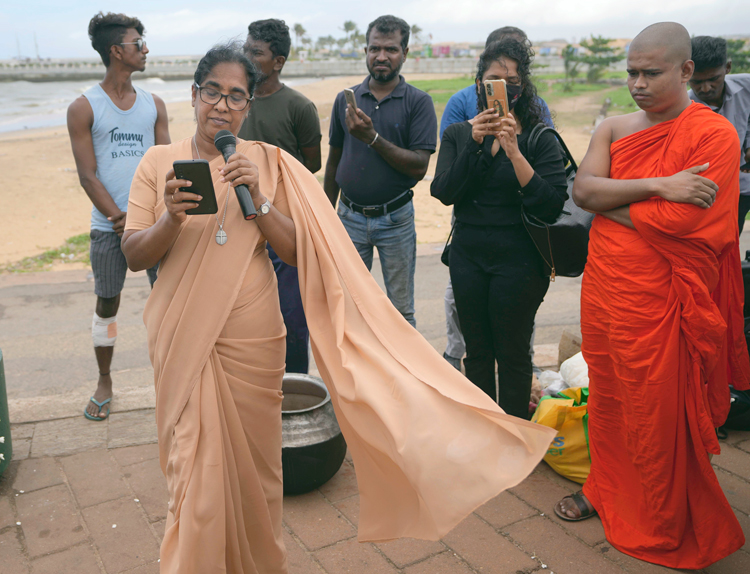Working people of all nationalities demonstrated in Sri Lanka’s capital, Colombo, above, May 18 to commemorate those who died in the country’s 1983-2009 civil war. The victims included tens of thousands of Tamils, an oppressed minority in the majority Sinhalese country. The government has long denied that Tamil civilians were killed in the conflict.
President Gotabaya Rajapaksa, the target of mass protests in recent weeks as workers and farmers suffer the worst economic crisis in the country since independence in 1948, had organized to put the Tamil rebellion down in blood during the civil war.
As the capitalist country’s crisis deepens, its currency has fallen 40% against the dollar. Food prices are up 46.6% this year. Hospitals are short of lifesaving medicines and officials warn many people face imminent starvation.
The government has been forced to suspend a $7 billion payment on its massive foreign debt. Newly installed Prime Minister Ranil Wickremesinghe said it “could not find even $5 million to import gasoline,” so fuel tankers remained anchored offshore.
Farmers cut back production and organized protests last year after the government barred the use of chemical fertilizers. Under this pressure, the ban was reversed. Many can’t afford to plant this year, rice farmer Niluka Dilrukshi said, “as the yield has gone down, while prices have gone up.”
Moscow’s war on Ukraine has severely exacerbated this crisis. Sri Lanka imports 45% of its wheat from Russia and Ukraine.
Hundreds of students from the Inter University Students’ Federation protesting against the government marched on Colombo’s central Fort area May 19. The police pushed them back with tear gas and water cannons. The president has given cops the power to shoot to kill.


